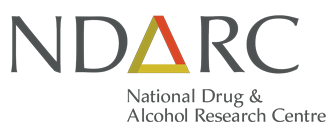Frequently Asked Questions

Researchers at the National Drug and Alcohol Research Centre would like to invite people who use ecstasy and other stimulants to participate in a one-hour CONFIDENTIAL and ANONYMOUS interview for the Ecstasy and Related Drugs Reporting System (EDRS). Participants are reimbursed $40 for their time and expenses. Contact the study coordinator in your state.
Get involved
If you would like more information or would like to apply to participate in the study, please send us your name (you can use a false one if you prefer), your telephone number, and/or your email address so we can get back to you.
Remember, this information is CONFIDENTIAL.

Frequently Asked Questions
-
Yes. At no time will information that can identify you (such as your name, date of birth or address) be recorded on the questionnaire. You are also free to use a false name.
-
Yes. This study is funded by the Australian Government Department of Health and Aged Care and has been conducted in each state and territory in Australia since 2003. It is coordinated nationally by the National Drug and Alcohol Research Centre (NDARC) at UNSW Sydney.
-
We conduct one-hour face-to-face or telephone/video conference interviews each year with people who regularly use ecstasy and related drugs.
-
As part of our requirements for ethical research, we are under obligation to ensure that participation is both confidential and anonymous. For example, that means that we do not reveal personal information about you to others and we do not attach your name or any other personally identifying information to your interview responses. It is important to us to ensure that our participants are treated in a respectful and ethical manner which includes protecting their privacy.
However, there are certain circumstances in which we need to break our confidentiality. These include:
- If you reveal the intention to hurt yourself or another person.
- If you disclose specific details about a crime you witnessed or were involved in (such as date, place, persons involved).
-
The de-identified data (i.e., containing no personal details) is kept in a secured database. The only people who can see this data are those directly involved with the study or applying for special permission.
-
EDRS participants usually contact us via Facebook or Instagram, by email, SMS or by calling us. The EDRS coordinator for their state will then ask them, with their consent, a few confidential questions to ensure they are eligible to participate in the study. If they are eligible, the coordinator will book a time to complete the interview. Interviews were sometimes completed on site at the centre where the study is held and sometimes in other locations which may be more convenient for participants (e.g., in a cafe or at a university campus), though interviews may be conducted over the telephone or via video conferencing (e.g., Microsoft Teams or Zoom).
It takes about 1 hour to complete an EDRS interview. Participants are reimbursed $40 for their time and travel expenses. If interviews are conducted face-to-face, participants will be reimbursed with cash. If interviews are conducted over the telephone/videoconference, participants will be reimbursed electronically, either via bank transfer, gift voucher or PayID.
During the interview, you will be asked questions about your use of drugs and alcohol, the price, purity and availability of drugs and other questions about your health and wellbeing (e.g., sexual health, mental health etc). You do not have to answer anything that you are uncomfortable answering. There are no blood, urine or hair samples taken as part of the study. There are no audio or video recordings taken.
-
The EDRS is a drug market monitoring study which is undertaken each year in every capital city of Australia. The project aims to examine patterns of use of ecstasy and other drugs (such as powder methamphetamine, methamphetamine base, crystal methamphetamine, ketamine, GHB, LSD, cocaine etc.); to document the price, purity and availability of these drugs; to look at drug-related harms and to identify emerging trends that require further investigation.
-
The data is used to:
- Compose a yearly report on drug markets in every capital city as well as nationally;
- Write regular bulletins addressing specific topics;
- Write research papers which inform the scientific and medical communities;
- Present findings at conferences, which comprise a range of stakeholders (e.g., peers, service providers, researchers); and
- Respond to enquiries about the drug markets (e.g., from the media or from government departments).
-
Sure. Go to our website.
-
Yes. Ethics approval has been received from the University of New South Wales Human Research Ethics Committee: Approval number HREC-190913.
-
You can find the contact details for your state below and either direct message, call or email them directly. You must contact the coordinator for the state you are currently living in. Scroll down to find their details or click on the link next to their name to send them an email directly.
Not in VIC but want to get involved?
To get involved, you can contact us in your preferred way: SMS, call, or email them directly. You must contact the coordinator for the state in which you currently live. You have come to the Tasmania page. Please see below for other state contacts
Other state key contacts
New South Wales
Find out more about EDRS if you are in New South Wales
Queensland
Find out more about EDRS if you are in Queensland
Australian Capital Territory
Find out more about EDRS if you are in the ACT
South Australia
Find out more about EDRS if you are in South Australia
Western Australia
Find out more about EDRS if you are in Western Australia
Tasmania
Find out more about EDRS if you are in Tasmania
Northern Territory
Find out more about EDRS if you are in the Northern Territory







